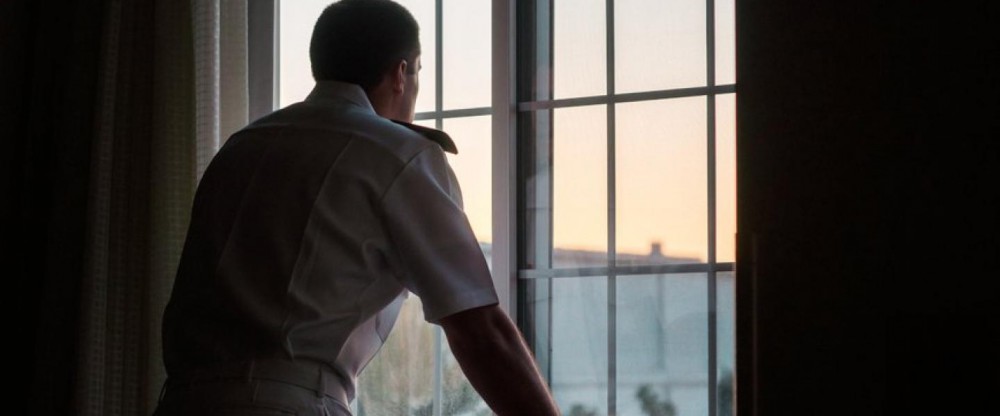The Connection Between PTSD and Sleep Apnea
You may already know that serving in the military increases the chance of posttraumatic stress disorder (PTSD), a mental health condition that can develop after experiencing a terrifying event like war. But what you may not realize is that PTSD is linked to a potentially dangerous nighttime issue: sleep apnea.
Experts already knew that PTSD can (unsurprisingly) affect shuteye: It’s not uncommon for people to have nightmares and trouble falling asleep once they’re home from service. And now new research, which looked at Iraq and Afghanistan veterans who were being evaluated for PTSD, found that 69.2 percent of those vets are at high risk for sleep apnea.
Signs of the disorder include loud snoring and frequent, interrupted breathing during the night—something that can sound like gasping or choking. Typically, one of the biggest risk factors for sleep apnea is excessive weight, but research is needed to determine exactly why PTSD is linked with sleep apnea. However, the study’s authors say that disrupted sleep and sleep deprivation while in combat, paired with veterans’ physical and psychological stress may play a role. The research also showed that the risk for sleep apnea climbs for those with more severe PTSD.
While it’s more common for the public to associate veterans' disabilities with disfigurement, amputations, or chronic pain, it’s important that vets, their doctors, and the general public take sleep apnea seriously. The condition can greatly impact one’s life and health: People with sleep apnea often wake up feeling exhausted, even if they had a full night’s sleep, since the breathing interruptions cause them to wake multiple times throughout the night. On top of that, untreated sleep apnea may up the chance of heart trouble, high blood pressure, diabetes, and liver problems. Luckily, treatment is available, and the study authors hope that their research will encourage all veterans being treated for PTSD to get screened for sleep apnea.
Learn more about how these medical devices can make a big difference in nighttime comfort for people with breathing issues.Sleep Apnea is a sleep disorder in which breathing is briefly and repeatedly interrupted during sleep. Learn how to cope with this sleep-related breathing disorder.A frequent need to get up and go to the bathroom to urinate at night is called nocturia. It differs...Have you ever wanted to know what happens to your body during menstruation? The latest infographic from the National Sleep...The Electronics and Sleep infographic highlights how technology affects the modern family and how parents can help design a sleep...Orexin receptor antagonists: A new class of sleeping pill Find out more about orexin, and a new type of sleep...How you feel about the sleep you get every night is known as sleep satisfaction. Unlike sleep quantity (which objectively...Feeling rested and rejuvenated after a night’s sleep is everyone’s goal, but how is that feeling measured? Sleep satisfaction ,...If you’ve noticed that your sleep habits have changed, without any major shifts to your lifestyle, you may want to...Hormonal changes during menopause can trigger a number of unwelcome sleep disruptions. In fact, up to half of all menopausal...

Source: Internet





